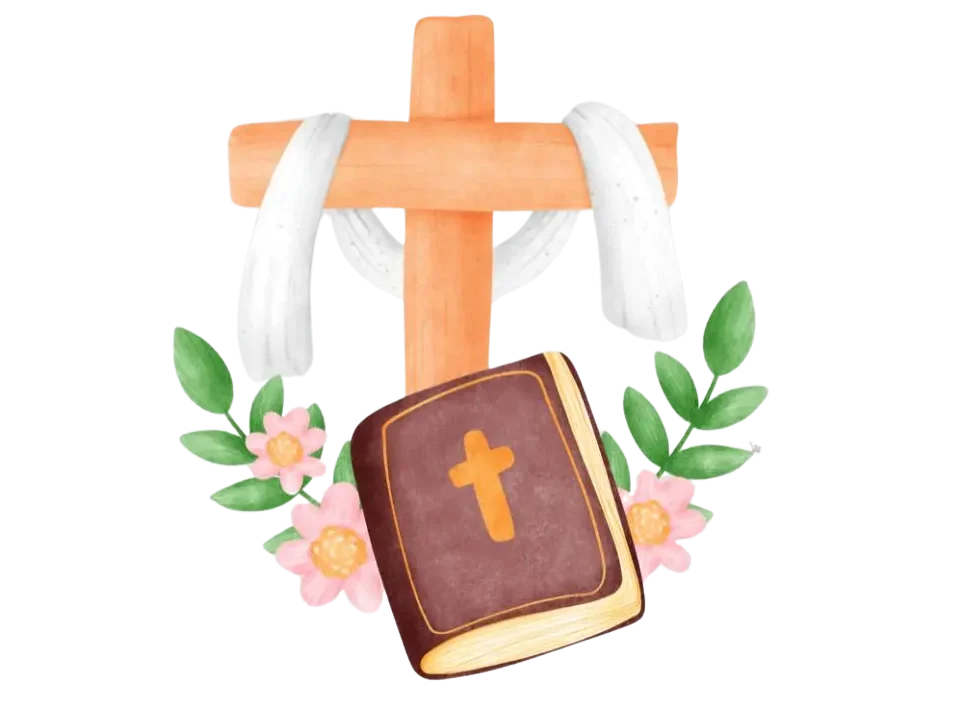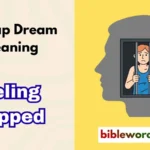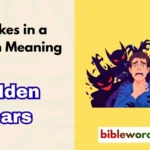In Spanish, “el gallo” means the rooster, and in Scripture, the rooster holds deep symbolic meaning. The most well-known reference is when Peter denied Jesus three times before the rooster crowed (Matthew 26:34).
For Christians, this symbol reminds us of human weakness, repentance, and the hope of restoration through Christ. As we look at Bible verses related to the rooster and the lessons it teaches, let us hold fast to God’s Word, trusting that His truth brings both conviction and comfort.
Below are key Scriptures, reflections, and life applications that can guide your walk with Christ.
Matthew 26:34 — Peter’s Denial Foretold
“Truly I tell you,” Jesus answered, “this very night, before the rooster crows, you will disown me three times.” (NIV)
Reflection: Jesus knew Peter’s weakness before Peter himself did. The rooster here symbolizes a moment of self-awareness and conviction.
Impact: This verse challenges us to recognize our own shortcomings and trust Christ to restore us when we fail. It can inspire humility and deeper reliance on God.
Matthew 26:75 — Peter Weeps Bitterly

“Then Peter remembered the word Jesus had spoken: ‘Before the rooster crows, you will disown me three times.’ And he went outside and wept bitterly.” (NIV)
Reflection: The crowing rooster reminded Peter of his failure, but it also set the stage for his repentance.
Impact: God uses moments of conviction to call us back to Him. This verse encourages believers to embrace repentance and the hope of forgiveness.
Mark 14:30 — Before the Rooster Crows Twice
“Truly I tell you,” Jesus answered, “today—yes, tonight—before the rooster crows twice you yourself will disown me three times.” (NIV)
Reflection: Jesus’ prediction was precise. The rooster crow is not random but divinely timed.
Impact: This teaches us that God is sovereign even over small details. It reminds us to trust His timing in every area of life.
Mark 14:72 — The Rooster Crowed the Second Time
“Immediately the rooster crowed the second time. Then Peter remembered the word Jesus had spoken to him. And he broke down and wept.” (NIV)
Reflection: Peter’s brokenness was not the end—it was the beginning of renewal.
Impact: When we hit our lowest points, God’s grace offers a new beginning. This truth encourages hope in times of failure.
Luke 22:34 — The Rooster Will Not Crow Today

“Jesus answered, ‘I tell you, Peter, before the rooster crows today, you will deny three times that you know me.’” (NIV)
Reflection: Jesus knew Peter’s weakness yet still loved him and chose him as a leader.
Impact: This verse shows that God sees our flaws but still calls us into His purpose. It strengthens our faith in His mercy.
Luke 22:60-61 — The Rooster Crowed
“Peter replied, ‘Man, I don’t know what you’re talking about!’ Just as he was speaking, the rooster crowed. The Lord turned and looked straight at Peter.” (NIV)
Reflection: The rooster’s crow was paired with Jesus’ loving gaze—a powerful moment of conviction.
Impact: This encourages us to respond to God’s gentle correction with humility and repentance. It brings hope that He never abandons us.
John 13:38 — The Rooster Will Crow
“Then Jesus answered, ‘Will you really lay down your life for me? Very truly I tell you, before the rooster crows, you will disown me three times!’” (NIV)
Reflection: Jesus exposed Peter’s overconfidence to prepare him for growth.
Impact: This reminds us not to rely on our own strength but on God’s grace. True strength is found in surrender.
John 18:27 — The Rooster Crowed
“Again Peter denied it, and at that moment a rooster began to crow.” (NIV)
Reflection: The rooster’s crow was the final reminder of Peter’s denial, but also the turning point toward his restoration.
Impact: Failures don’t define us; God’s redemption does. This verse inspires believers to rise again after mistakes.
Proverbs 30:31 — A Rooster Strutting Proudly

“A strutting rooster, a he-goat, and a king secure against revolt.” (NIV)
Reflection: The rooster here symbolizes confidence and readiness.
Impact: Believers are called to stand firm in faith with confidence in God’s power, not pride in themselves.
Job 38:36 — Who Gives the Rooster Understanding?
“Who gives the ibis wisdom or gives the rooster understanding?” (NIV)
Reflection: Even the rooster’s instinct to crow comes from God.
Impact: This verse reminds us that all wisdom and purpose come from the Lord. It builds trust in His design for creation and our lives.
Conclusion:
The meaning of “el gallo” in the Bible goes far beyond a simple rooster. It points to conviction, repentance, humility, and renewal in Christ. Just like Peter, we may stumble, but God uses those moments to draw us closer to Him.
When you hear the crow of a rooster—or face reminders of your own weakness—remember that God’s grace is always greater. Share this message with someone who needs encouragement today!





